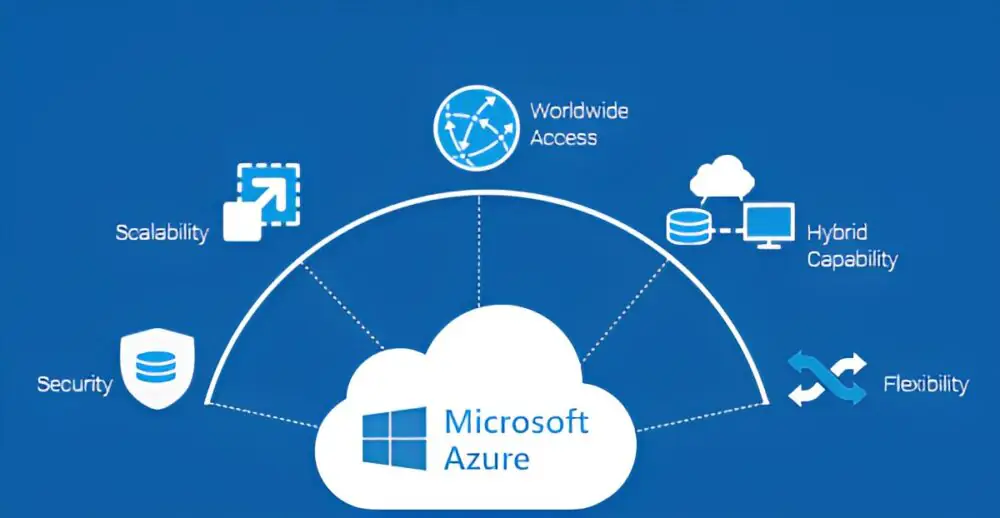
In the ever-evolving landscape of cloud computing, Microsoft Azure has emerged as a juggernaut, offering a comprehensive suite of services that empowers businesses to innovate, scale, and transform in the digital age. As we delve into the intricate realm of cloud solutions, this blog provides a holistic overview of Microsoft Azure – its features, benefits, and how it is reshaping the future of cloud computing.
Understanding Microsoft Azure:
Microsoft Azure, commonly referred to as Azure, is a cloud computing platform provided by Microsoft. Launched in 2010, Azure has grown into one of the leading cloud service providers, serving a diverse range of industries, from startups to Fortune 500 companies. It offers a vast array of services, including computing power, storage solutions, networking capabilities, databases, analytics, and more.
Key Features and Services:
Compute Services: Azure provides a variety of cloud computing services, including virtual machines, app services, and serverless computing with Azure Functions. This flexibility allows businesses to deploy applications in a way that suits their specific needs.
Storage Solutions: Azure offers scalable and secure storage options, such as Blob Storage, Table Storage, and Queue Storage, ensuring businesses have the right tools to manage their data efficiently.
Networking Services: Azure enables the creation of virtual networks, allowing businesses to securely connect their on-premises infrastructure to the cloud. Azure Virtual Network, Azure ExpressRoute, and Azure VPN Gateway are some of the networking services that facilitate this seamless integration.
Databases and Analytics: With Azure, businesses can leverage a variety of database options, including SQL Database, Cosmos DB, and Azure Synapse Analytics. These services empower organizations to derive meaningful insights from their data.
Artificial Intelligence (AI) and Machine Learning (ML): Azure integrates AI and ML services, such as Azure Machine Learning and Azure Cognitive Services, enabling businesses to infuse intelligence into their applications, automate processes, and gain a competitive edge.
Security and Compliance: Microsoft prioritizes the security of Azure, offering a range of features like Azure Active Directory for identity and access management, Azure Security Center for threat protection, and compliance certifications to meet industry standards.
Benefits of Microsoft Azure:
Scalability: Azure allows businesses to scale their infrastructure up or down based on demand, providing flexibility and cost-effectiveness.
Global Reach: With data centers strategically located around the world, Azure enables businesses to deploy applications globally, ensuring low-latency and high-performance experiences for users.
Hybrid Capabilities: Azure supports hybrid cloud scenarios, allowing businesses to integrate their on-premises data centers with the cloud seamlessly.
Cost Management: Azure’s pay-as-you-go model ensures that businesses only pay for the services they use, optimizing cost management and resource utilization.
Innovation and Agility: Azure provides a rich set of tools and services that empower businesses to innovate rapidly, experiment with new ideas, and bring products to market faster.
Conclusion:
Microsoft Azure stands as a testament to the transformative power of cloud computing. Its robust suite of services, coupled with a commitment to Data Security and compliance, positions Azure as a preferred choice for businesses embarking on their digital transformation journey. As the cloud computing landscape continues to evolve, Microsoft Azure remains at the forefront, driving innovation, enabling scalability, and unlocking new possibilities for organizations around the globe. Whether you’re a startup looking to scale or an enterprise seeking to modernize, Microsoft Azure offers the tools and capabilities to propel your business into the future.
